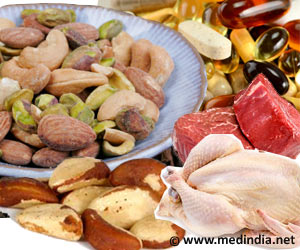Climate change endangers prospects for further progress in cancer prevention and control, increasing exposure to cancer risk factors, and impacting access to cancer care.

‘Climate change creates conditions favorable to greater production of and exposure to known carcinogens.’





Climate change has been linked to an increase in extreme weather events, like hurricanes and wildfires, which can impact cancer. Hurricane Harvey, for example, inundated chemical plants, oil refineries, and Superfund sites that contained vast amounts of carcinogens that were released into the Houston community. Wildfires release immense amounts of air pollutants known to cause cancer. Both events can affect patients' exposure to carcinogens and ability to seek preventive care and treatment; they threaten the laboratory and clinic infrastructure dedicated to cancer care in the United States.The authors also propose ways to diminish the impact of climate change on cancer, because climate change mitigation efforts also have health benefits, especially to cancer prevention and outcomes. For example, air pollutants directly harmful to health are emitted by combustion processes that also contribute to greenhouse gas emissions. Some dietary patterns are also detrimental to both health and the environment.
The agricultural sector contributes to approximately 30% of anthropogenic greenhouse gas emissions worldwide. Meat from ruminants has the highest environmental impact, while plant-based foods cause fewer adverse environmental effects per unit weight, per serving, per unit of energy, or per protein weight. Replacing animal source foods with plant-based foods, through guidelines provided to patients and changes made in the food services provided at cancer treatment facilities, would confer both environmental and health benefits.
"While some may view these issues as beyond the scope of responsibility of the nation's cancer treatment facilities, one need look no further than their mission statements, all of which speak to eradicating cancer," write the authors.
"Climate change and continued reliance on fossil fuels push that noble goal further from reach. However, if all those whose life work is to care for those with cancer made clear to the communities they serve that actions to combat climate change and lessen our use of fossil fuels could prevent cancers and improve cancer outcomes, we might see actions that address climate change flourish, and the attainment of our missions to reduce suffering from cancer grow nearer."
Advertisement















